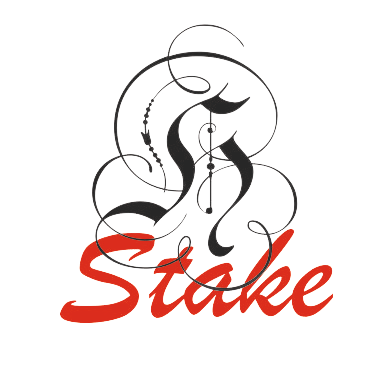To effectively navigate the job market, it’s essential to stay informed about industry trends, particularly in sectors experiencing significant growth, such as technology, healthcare, and renewable energy. Identifying roles that are in high demand within these industries can increase your job opportunities. Additionally, understanding the specific skills and qualifications that employers in your target industry seek is crucial. This includes technical skills, like programming languages, and soft skills, such as leadership and communication. By aligning your skill set with these requirements, you can better position yourself as a strong candidate.
Equally important is researching the companies you’re interested in. Understanding a company’s culture and values allows you to tailor your application to show how well you align with their mission and work environment. Analyzing competitors can also provide valuable insights into the broader industry landscape, helping you identify how to differentiate yourself. Moreover, investigating the growth and hiring patterns of companies can reveal which organizations are expanding and actively seeking new employees, giving you a better chance of landing a job in a growing firm. Navigating a competitive job application process requires a multifaceted approach that encompasses the following strategy.
1. Tailoring Your Application
Tailoring your application begins with crafting a strong resume that is customized for each job you apply to. Instead of using a generic resume, emphasize the experience and skills most relevant to the specific position by aligning your content with the job description. Highlighting these relevant experiences through bullet points can make your achievements stand out, making it easier for recruiters to identify your suitability for the role. Additionally, whenever possible, quantify your achievements to provide concrete evidence of your capabilities, such as stating, “Increased sales by 20%” or “Managed a team of 10 people,” which can significantly strengthen your resume.
In addition to a tailored resume, a compelling cover letter is crucial in making a strong first impression. Your cover letter should directly address the job requirements, clearly illustrating how your skills and experiences align with what the employer is seeking. Beyond just meeting the qualifications, your cover letter is an opportunity to showcase how well you fit with the company’s culture. By highlighting aspects of the company’s values that resonate with you and by expressing genuine enthusiasm for the role, you can demonstrate that you are qualified and enthusiastic about advancing the company’s development.
Finally, optimizing your LinkedIn profile is essential to ensure that it complements your resume and maximizes your visibility to potential employers. Consistency between your LinkedIn profile and your resume is key, as any discrepancies could raise concerns for recruiters. To increase your chances of being found in recruiter searches, strategically incorporate industry-specific keywords into your profile, particularly in the headline, summary, and job descriptions. Additionally, actively building and engaging with your professional network on LinkedIn by connecting with colleagues, industry professionals, and recruiters can further enhance your profile’s strength, with endorsements and recommendations adding credibility to your listed skills and experiences.

2. Enhancing Your Qualifications
To enhance your qualifications in a competitive job market, continuous learning and skill development are essential. Pursuing industry-recognized certifications, such as PMP for project management or AWS for cloud computing, can significantly boost your credibility and expertise. Engaging in online courses and workshops through platforms like Coursera, LinkedIn Learning, and edX allows you to acquire new skills or deepen your existing knowledge, making you more versatile in your field. Additionally, staying updated with the latest tools, software, and technologies relevant to your industry is crucial for maintaining a competitive edge. Regularly updating your skills ensures that you remain a valuable asset to potential employers.
Gaining practical experience is equally important in building a robust professional profile. Volunteering or taking on internships, even if unpaid, provides hands-on experience and helps you build a portfolio of work that demonstrates your abilities. Freelancing or engaging in project-based work offers flexibility and the opportunity to gain experience across different areas, further strengthening your portfolio. Participating in industry events, hackathons, or competitions enhances your practical skills and allows you to network with professionals and make valuable connections that could lead to future job opportunities.
3. Building a Personal Brand
Building a personal brand is crucial in distinguishing yourself in the job market, and establishing an online presence is a key component of this process. Creating a professional website or portfolio allows you to showcase your work, achievements, and skills, making it particularly important for creative fields like design and writing. Additionally, writing blog posts or contributing articles to industry publications can demonstrate your thought leadership and expertise, helping to position you as an authority in your field. Engaging actively on professional social media platforms such as LinkedIn and Twitter by sharing industry news, participating in discussions, and networking can further enhance your reputation as a knowledgeable professional.
Effective networking is another vital aspect of building a personal brand. Attending industry events, webinars, and meetups allows you to expand your professional network and make valuable face-to-face connections. Leveraging LinkedIn to connect with industry leaders, recruiters, and peers can also be highly effective, especially when you personalize your connection requests and follow up with meaningful interactions. Moreover, joining relevant professional organizations and groups can provide access to job boards, networking events, and professional development resources, all of which contribute to growing your professional presence and opportunities in your field.
4. Preparing for the Interview
Preparing for an interview begins with thorough research into the company and the role you are applying for. Understanding the company’s products, services, mission, and strategic goals enables you to articulate how your skills and experiences can contribute to their success. Analyzing the job description in detail allows you to tailor your responses to meet the employer’s specific needs, ensuring that you address the most critical aspects of the role. Additionally, researching the backgrounds of your interviewers through LinkedIn or the company’s website can help you find common ground, making it easier to connect with them during the interview.
Practising common interview questions is another essential step in preparation. Start by focusing on behavioural and situational questions, using the STAR method (Situation, Task, Action, Result) to structure your answers effectively. This method helps you communicate your past experiences and how they are relevant to the job. Additionally, prepare for role-specific technical questions by studying and practising the relevant skills, whether it’s coding exercises, case studies, or other industry-specific knowledge. By crafting strong STAR responses, you can confidently showcase your achievements and problem-solving abilities.
Lastly, demonstrating soft skills during the interview is critical to making a positive impression. Clear and concise communication is key, so practice your speaking skills and be mindful of your body language, eye contact, and tone of voice. Be prepared to discuss past experiences where you successfully solved problems, as employers highly value candidates who can think critically and offer solutions. Additionally, highlight your ability to work well in teams and adapt to changing environments, as these qualities are often essential for success in most roles. By effectively showcasing these soft skills, you can further distinguish yourself as a well-rounded candidate.
5. Following Up Post-Interview
After an interview, it’s important to follow up with a thank you note to reinforce your interest in the role. Sending a thank you email within 24 hours allows you to express your appreciation for the opportunity and reiterate your enthusiasm for the position. Highlight the main elements from the interview that you found particularly noteworthy in the note to show that you were paying attention and participating in the discussion.. This thoughtful gesture can leave a lasting positive impression on the interviewer and strengthen your candidacy.
Additionally, taking time to reflect on your interview performance is crucial for continuous improvement. Analyze how the interview went, identifying areas where you excelled and aspects that could be improved. If possible, seek constructive feedback from the interviewer, particularly if you didn’t get the job, as this can provide valuable insights for future opportunities. Use this reflection and any feedback received to refine your resume, interview techniques, and overall application strategy, ensuring you are better prepared and more confident for the next opportunity.
6. Staying Persistent and Positive
Overcoming obstacles and eventually succeeding in your job hunt depend on your ability to remain positive and persistent. Handling rejection gracefully involves viewing it as a learning opportunity rather than a failure. Each rejection provides valuable insights that can help you improve for future applications. Maintaining a positive mindset is crucial, as it keeps you motivated and focused on the opportunities ahead, helping you to stay resilient throughout the process.
To keep up the momentum, it’s important to continue applying for roles even when faced with setbacks. Regularly updating and refining your resume, cover letter, and LinkedIn profile ensures that your application materials reflect your latest experiences and any feedback you’ve received. Staying engaged with your professional network is also vital, as it can lead to new opportunities and valuable referrals. By staying active and persistent, you increase your chances of finding the right job fit.

7. Leveraging Professional Assistance
Leveraging professional assistance can significantly enhance your job search efforts. Working with recruiters offers several advantages, including access to valuable insights about the job market and connections to opportunities that align with your skills and experience. By building relationships with recruiters who specialize in your industry, you can gain insider information on job openings and receive advocacy that could increase your chances of landing a desirable position.
Seeking career coaching is another effective way to advance your career. A career coach provides personalized advice to help you identify your strengths, set realistic career goals, and develop a strategic plan to achieve them. Additionally, career coaches offer targeted guidance on improving your resume and interview skills, helping you present yourself more effectively to potential employers. Collaborating with a career coach can also help you create a focused roadmap for your career progression, keeping you motivated and on track.
Conclusion
Navigating a competitive job application process requires a multifaceted approach that encompasses understanding the job market, tailoring your application materials, and leveraging professional resources. By staying informed about industry trends and target companies, you can better position yourself as a strong candidate. You may make your application stand out by personalizing your cover letter and CV and making sure that your LinkedIn profile is optimized. Continuous learning, practical experience, and effective networking further enhance your qualifications and personal brand.
Moreover, preparing thoroughly for interviews and following up with thoughtful gestures can leave a lasting impression on potential employers. Handling rejection with resilience and maintaining momentum through persistent applications and regular updates to your materials are essential for long-term success. Leveraging professional assistance, such as working with recruiters and career coaches, can provide valuable insights and personalized guidance, helping you refine your strategy and achieve your career goals. By integrating these strategies, you can improve your chances of securing the role you desire and advancing your career with confidence.





